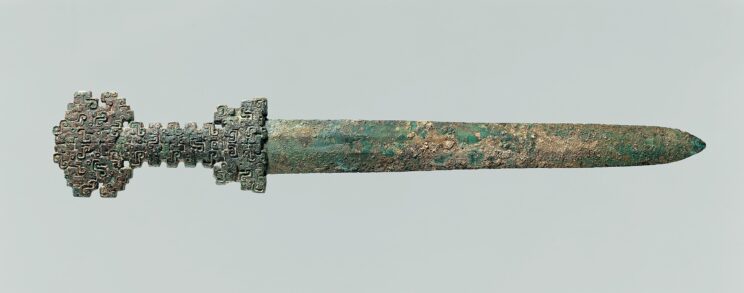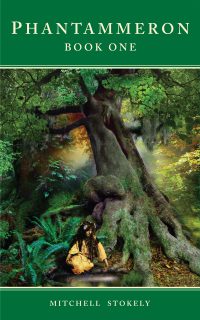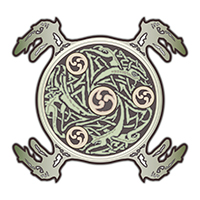In the beginning of Phantammeron Book One I briefly introduce the fallen son named the Limitless Void and his shining sword, Vatavandr. The term comes from my early exploration of artificial language, the word “Vatar” meaning “flesh” and Vatavandr meaning “flesh cutting” or “spirit-sword” in my books.

The “Limitless Void” was a Primordial One, the second son of the Creator and as such was given the task of cutting the spirit of the dead from their flesh upon death. Their flesh would then be returned to the earth and their spirits freed to join the train of the dead that wound its way to Avredd or the Land of the Afterlife in the book.
The metaphor for this was a hybrid idea of death as a union of flesh and spirit, that parallels the Emptiness and Nothingness that devour each back into Void. The metaphor of this extends to another son of the Creator….the Immortal Clay who was in charge of Avredd where the souls go to rest and then who are summoned to be reborn in new “raiment” or flesh again at his bidding.
This idea was a conscious merging of the two ideals of Christianity and Hindu belief, that upon death our spirits go to a heaven or place of rest, but which through divine karma may be given new life in this world again.
But I really liked the invention of a sword as not a “weapon” of death but the freer of death. What a cool reversal? …… of swords, not as takers of life but releases from it, thus givers of new life! And this idea of double-meaning or flip flopping of meaning fills all my books and the mythological concepts that support them.
In the 2nd chapter the Void in bitterness casts away Vatavandr, the sword given to him by the Creator his father, which disappears into a black pool (the same pool Ana visits towards the end of the book). I loved this idea of the releasing of a weapon or surrendering of weapons back into earth or water. That same idea is found in the Arthurian Cycle and it has very deep mythological meaning to us as a symbol of the abdication of responsibility, of transformation from active adult to passive, and of transference of the hero from his first act of conflict through battle to the beginning of the deeper spiritual battle or psychological conflict required in his later spiritual journeys, where without weapons or friends, he must face his true self.
But the disappearance of Vatavandr into the dark waters and never appearing again in my book was wonderful to write because it was a “bold rebellion” for me against so many other books and writers of fantasy…..books I had read where writers make swords the center of conflict or story.
By briefly telling the reader the Void watched as his shining sword disappeared beneath the waves I’m saying “hey swords don’t matter, people matter” in drama. And that was the true purpose for that event in the book. It was a statement against Modern Fantasy tropes I had always disliked.
But the spirit-sword yet holds another story that will appear in Book Two. And I wanted to show my readers that everything that’s in my books is carefully placed with layers of mystery and meaning that disappear for a while but which may mysteriously reappear. And I enjoy that type of thing in my writing very much….the mystery of it and surprise. So, you will see Vatavandr rise again from the waves.
For it has another purpose yet to be revealed. But swords, rings, armor, and relics will NEVER be the source of story for me. They are just tools. People and relationships shaped by forces they control and yet don’t control will always be the foundation of my writing, and thus the Phantammeron.
– the Author



